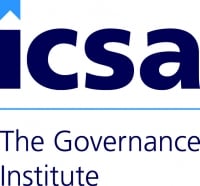Herbert Smith Freehills (HSF) has made what its senior partner James Palmer described as a ‘game changer’ for its Chinese practice by signing a joint operation agreement with 20-lawyer Shanghai firm Kewei.
The move announced today (7 August) makes HSF the sixth Western firm to acquire PRC law capability in the Shanghai Free Trade Zone (FTZ), as part of the scheme launched by the Chinese government in 2013 in a bid to boost foreign investment.
While HSF’s 35-strong China operation remains barred from practising local law, the deal will allow its Shanghai practice to team up with Kewei’s PRC-qualified lawyers on client matters through a contractual arrangement known as HSF Kewei.
Palmer told Legal Business: ‘This may look just like another decision but it’s strategically key: clients are looking for integrated capability and if you can deliver it, as we now can, that’s a game changer for us in terms of offering advice in China.’
The deal took over a year of negotiations and planning before receiving the approval of Shanghai’s Bureau of Justice. Palmer said HSF picked Kewei because the firm, launched in 1995, had been growing with a view to tying up with an international player in recent years.
He said: ‘It was not a firm we would have worked with five years ago, but it developed a strategy to meet international quality standards with a view to entering an international partnership like this. It wants to be the Shanghai end of global quality work.’
As part of the deal, Kewei has also absorbed HSF’s alternative legal services hub, set up in Shanghai in summer 2016, into its own managed services business.
The initial focus of the joint operation will be on cross-border M&A, finance, disputes, competition, capital markets and financial services regulatory. Palmer noted the firm had not set any targets for headcount growth but its development would be influenced by ‘client response and the quality of people we can find’.
Despite being the only way around the ban on local law for foreign counsel in mainland China, just five firms have preceded HSF in signing similar partnerships in the six years since the launch of the FTZ.
The first was Baker McKenzie, which in April 2015 signed an association with FenXun Partners, followed by HFW’s deal with Wintell & Co in April 2016; Hogan Lovells’ alliance with Fujian Fidelity Law Firm in October 2016; and Ashurst’s tie-up with Guantao in January 2018.
Completing the group is Linklaters which, after holding talks with several firms for years, resolved to spin off some of its team to launch 30-lawyer practice Zhao Sheng and then set up a joint operation with it, which received the green light in May last year.
Palmer mentioned the current challenging economic climate in China amid trade wars with the US and the difficulties in finding a partner firm of the right quality as some of the challenges in the route to such partnerships for Western firms.
He added: ‘We take a long-term view: we are looking at the next 10 to 20 years, and international trade with China is going to increase massively. So we were not worried to enter [this association] in this period.’
The Shanghai launch comes after HSF posted the second consecutive year of sharp uptick in partner profits amid slower revenue growth. The firm’s top line rose 4% to £966m while profit per equity partner surged 11% to £949,000.
Author: Legal Business







